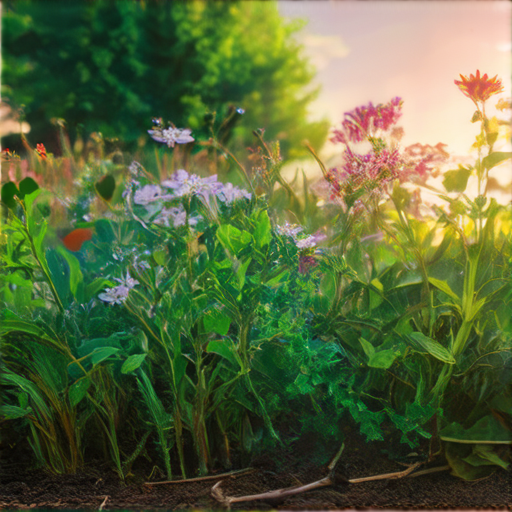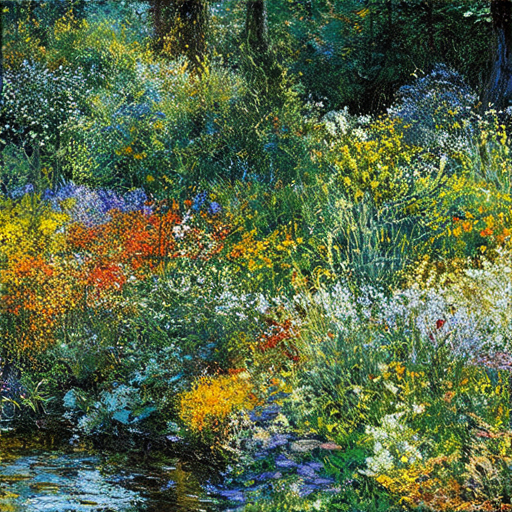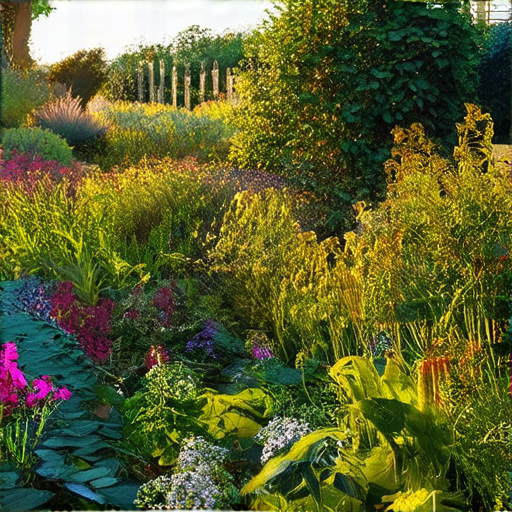As the world becomes increasingly aware of the importance of sustainable agriculture and reducing our carbon footprint, many gardeners and farmers are turning to organic fertilizer alternatives to traditional chemical-based fertilizers. These alternatives not only promote healthier soil but also provide a more environmentally friendly way to nourish your plants. From compost tea and manure tea to homemade compost mixes and natural fertilizers like fish bone meal and kelp meal, there are numerous options available for those looking to ditch synthetic fertilizers and adopt a more eco-conscious approach to gardening.
What Organic Farmers Use Instead of Fertilizer
As an advocate for sustainable agriculture and heirloom gardening, I’m often asked what organic farmers use instead of synthetic fertilizers.
- Manure Tea: A liquid solution made by steeping animal manure in water, which acts as a natural fertilizer and soil conditioner.
- Compost: A nutrient-rich soil amendment created by decomposing organic materials like food waste, leaves, and grass clippings.
- Bone Meal: A slow-release fertilizer made from ground animal bones, rich in phosphorus and nitrogen.
- Green Sand: A type of glauconite, a mineral-rich sedimentary rock that acts as a natural fertilizer and soil conditioner.
- Alfalfa Meal: A high-protein fertilizer made from the dried and ground leaves of the alfalfa plant.
- Kelp Meal: A slow-release fertilizer made from dried and ground seaweed, rich in micronutrients and macronutrients.
- Worm Castings: A nutrient-rich fertilizer produced by worms as they break down organic matter in compost piles.
- Fish Bone Meal: A slow-release fertilizer made from ground fish bones, rich in phosphorus and nitrogen.
- Rock Dust: A finely ground mineral powder that adds essential nutrients and microorganisms to the soil.
These alternatives to synthetic fertilizers promote healthy soil biota, conserve water, and reduce environmental pollution.
By adopting these natural methods, organic farmers can create thriving ecosystems that support biodiversity and produce nutritious crops.
At Old Seed, we believe in empowering gardeners and farmers to make informed choices about their soil health and fertility.
We offer a range of resources and tools to help you transition to sustainable agriculture practices and enjoy the many benefits of organic gardening.
Join our community today and discover the power of natural fertilizers and regenerative agriculture!
The Best Homemade Organic Fertilizers
As an avid gardener, I’m always on the lookout for effective and eco-friendly ways to nourish my plants. One of the most popular and versatile options is making your own homemade organic fertilizers using common household items.
- Banana Peel Fertilizer: Rich in potassium, banana peels can be added to your compost pile or made into a liquid fertilizer by steeping them in water. Simply bury banana peels around the base of your plants or mix them into your soil for a nutrient boost.
- Black Tea Compost: Used tea bags can be added to your compost pile to create a rich, nitrogen-rich fertilizer. Steep the tea bags in water to create a liquid fertilizer that promotes healthy plant growth.
- Molasses Fertilizer: Molasses is a natural source of phosphorus, which promotes root development and flower production. Mix 1 tablespoon of molasses with 1 gallon of water to create a liquid fertilizer.
- Eggshell Calcium Fertilizer: Crushed eggshells can be added to your soil to provide calcium, which promotes strong plant growth and prevents blossom end rot. Mix crushed eggshells into your soil or use as a mulch around your plants.
- Coffee Ground Fertilizer: Used coffee grounds are rich in nitrogen, phosphorus, and potassium, making them an excellent addition to your compost pile or as a liquid fertilizer. Steep coffee grounds in water to create a nutrient-rich fertilizer.
- Worm Castings Fertilizer: Worm castings, also known as vermicompost, are a nutrient-dense fertilizer made from worm waste. Add worm castings to your soil or use as a liquid fertilizer to promote healthy plant growth.
Why Choose Homemade Organic Fertilizers?
Homemade organic fertilizers offer several benefits, including:
- Cost-effective: Making your own fertilizers can save you money compared to buying commercial products.
- Environmentally friendly: Homemade fertilizers reduce waste and minimize chemical runoff into our waterways.
- Natural and non-toxic: Organic fertilizers promote healthy plant growth without harming beneficial microorganisms or contaminating soil.
- Customizable: By making your own fertilizers, you can tailor the recipe to meet the specific needs of your plants.
Tips for Making Effective Homemade Fertilizers
To get the most out of your homemade fertilizers, remember to:
- Use fresh ingredients: Fresh materials will yield better results than stale or spoiled ones.
- Follow recipes carefully: Measure ingredients accurately and follow instructions to ensure optimal results.
- Test and adjust: Monitor your plants’ response to homemade fertilizers and adjust recipes as needed.
By incorporating these simple and effective homemade organic fertilizers into your gardening routine, you’ll be well on your way to growing healthy, thriving plants without breaking the bank or harming the environment.
The Most Environmentally Friendly Fertilizer
We believe that choosing the right fertilizer can have a significant impact on our environment.
-
Compost-based fertilizers are made from decomposed organic materials and are rich in nutrients.
-
Bone meal is a slow-release fertilizer made from ground animal bones and is high in phosphorus.
-
Kelp meal is a nitrogen-rich fertilizer made from dried seaweed and is excellent for promoting healthy plant growth.
-
Grain-based fertilizers are made from fermented grains and are high in protein and micronutrients.
When selecting an environmentally friendly fertilizer, consider the following factors:
-
Natural ingredients: Look for fertilizers made from natural ingredients such as compost, bone meal, and kelp.
-
No synthetic chemicals: Avoid fertilizers containing synthetic chemicals, which can harm the environment and contaminate waterways.
-
Sustainable production: Choose fertilizers produced using sustainable methods, such as those that minimize waste and conserve energy.
-
Long-term benefits: Select fertilizers that promote long-term soil health and fertility, reducing the need for frequent applications.
Some popular alternatives to chemical fertilizers include:
-
Worm castings: A nutrient-rich fertilizer made from worm compost.
-
Alfalfa meal: A nitrogen-rich fertilizer made from dried alfalfa plants.
-
Cottonseed meal: A slow-release fertilizer made from ground cottonseeds.
At Old Seed, we’re committed to helping you grow a healthier, more sustainable garden using environmentally friendly fertilizers.
Alternatives to Fertilizers
I’m glad you’re looking for alternatives to synthetic fertilizers, which can harm the environment and contaminate soil.
-
Natural Manures
- Compost: Made from decomposed organic matter, compost adds nutrients and improves soil structure.
- Manure Tea: A liquid solution made by steeping animal manure in water, rich in beneficial microbes.
- Worm Castings: Rich in nutrients and microorganisms, worm castings promote healthy plant growth.
-
Organic Amendments
- Blood Meal: High in nitrogen, blood meal promotes leaf growth and green color.
- Bone Meal: Slow-release phosphorus source, bone meal supports root development and flower production.
- Kelp Meal: Rich in micronutrients, kelp meal enhances overall plant health.
-
Sustainable Practices
- Crop Rotation: Rotating crops helps maintain soil fertility and reduces pests and diseases.
- Cover Cropping: Planting cover crops between crop cycles protects soil and retains moisture.
- Green Manuring: Incorporating green plants into the soil adds nutrients and suppresses weeds.
-
Other Options
- Alfalfa Meal: High in nitrogen and phosphorus, alfalfa meal promotes healthy plant growth.
- Fish Bone Meal: Rich in phosphorus and calcium, fish bone meal supports root development and flower production.
- Rock Dust: Adds minerals and improves soil structure, rock dust promotes healthy plant growth.
By incorporating these alternatives into your gardening routine, you’ll reduce your reliance on synthetic fertilizers and create a healthier, more sustainable growing environment.
Improving Soil Nutrients Without Fertilizers
I’m always excited to share ways to enhance our soil without relying on synthetic fertilizers.
- Mulching: As I’ve mentioned before, mulching is an excellent method to enrich your soil. By applying a layer of organic material like dried leaves, dead plants, or wood chips, you’ll encourage decomposition and feed your soil microbiome.
- Composting: Composting is another fantastic way to add nutrients to your soil. By breaking down kitchen scraps, yard waste, and other organic materials, you’ll create a nutrient-rich compost that will benefit your plants.
- Cover Cropping: Planting cover crops between crop cycles can help improve soil health. These crops, such as legumes or grasses, fix nitrogen, suppress weeds, and attract beneficial insects.
- Green Manure: Green manure involves incorporating green plant material into your soil to add nutrients and improve its structure. This can be done by planting green manure crops or using fresh grass clippings.
- Worm Castings: Worm castings, also known as vermicompost, are a rich source of nutrients produced by worms as they break down organic matter. Adding worm castings to your soil can provide essential micronutrients and improve its overall health.
- Bokashi: Bokashi is a fermentation process that converts organic waste into a nutrient-rich liquid fertilizer. This method can help reduce waste and create a valuable resource for your garden.
- Manure Tea: Manure tea is a liquid solution made by steeping animal manure in water. This tea is rich in beneficial microbes and can be used as a foliar spray or added to the soil to promote healthy microbial activity.
- Rock Dust: Rock dust, also known as rock powder, is a finely ground mineral supplement that can help replenish depleted soil nutrients. It contains essential minerals like calcium, magnesium, and potassium that support plant growth.
By implementing these methods, you’ll be able to improve your soil’s nutrient levels without relying on synthetic fertilizers. Remember to always monitor your soil’s pH and adjust your approach accordingly. Happy gardening!
Natural Fertilizers
As an advocate for heirloom gardening and sustainable agriculture, I’m excited to share my knowledge on natural fertilizers.
-
Definition
-
Composition
- Manure from animals, such as cows, chickens, or horses
- Compost made from decomposed organic matter like food scraps, leaves, or grass clippings
- Minerals like bone meal, alfalfa meal, or kelp meal
-
Examples
- Bokashi fertilizer, made from fermented organic matter
- Worm castings, produced by red wiggler worms
- Green sand, a type of glauconite rich in potassium and micronutrients
-
Benefits
- Improved soil health and structure
- Increased crop yields and better flavor
- Reduced environmental pollution and greenhouse gas emissions
- Sustainable and renewable resource
-
How to Use Natural Fertilizers
Natural fertilizers are substances derived from living organisms or mineral deposits that promote plant growth without harming the environment.
The composition of natural fertilizers varies depending on their source, but common ingredients include:
Some popular examples of natural fertilizers include:
Natural fertilizers offer several benefits over synthetic alternatives:
To get the most out of natural fertilizers, follow these guidelines:
- Choose the right type of fertilizer for your plants and soil needs
- Follow the recommended application rates and timing
- Mix natural fertilizers with water or other amendments as needed
- Monitor soil pH and adjust accordingly
By incorporating natural fertilizers into your gardening routine, you’ll be taking a significant step towards creating a more sustainable and thriving ecosystem.
At Old Seed, we’re passionate about sharing our expertise and resources to help you grow the best possible crops using natural and organic methods.





0 Comments